Smart rings are all the rage these days as more and more companies step into the ring (so to speak) with their own takes on the wearable tech. For some time, Oura was the only big player with its well-received Oura Ring Gen 3, but other smaller companies have since created their own models that have caught our attention. We even got a major player to join the fray, with the Galaxy Ring making a splash in 2024.
A smart ring can be used as a standalone health monitoring wearable, meant to track your heart rate, blood oxygen, sleep, body temperature, and even some exercises. They can be used on their own or in tandem with a smartwatch; although your mileage may vary as you may end up with duplicate data, smart rings are meant to be a low-maintenance and distraction-free way to keep track of your health. There’s no screen, and everything is tracked passively in the background, with minimal interaction with the actual ring.
So, which smart ring is right for you? We’ve reviewed a number of smart rings already, which you can check out for yourself in this guide, but we’ll also include some honorable mentions that we haven’t tested yet.
And with the October Prime Day sales event right around the corner, we’ll be on the lookout for best smart ring deals so you can save a few bucks.

Derrek Lee has been a fan of smart rings since he reviewed the Oura Ring in 2021. Since then, he has reviewed a handful of other rings, testing their accuracy and seeing how smart rings can help determine your daily readiness and create healthy habits.
At a glance
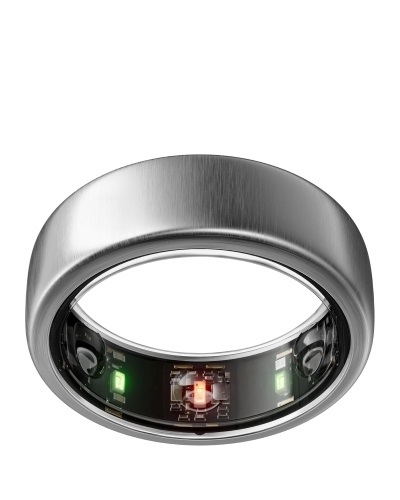
Best overall
The Oura Ring Gen 3 brings great battery life and a feature-packed companion app that makes it easy to keep track of all your health data. Plus it also syncs with Google’s Health Connect so you can add or share health data with other apps.
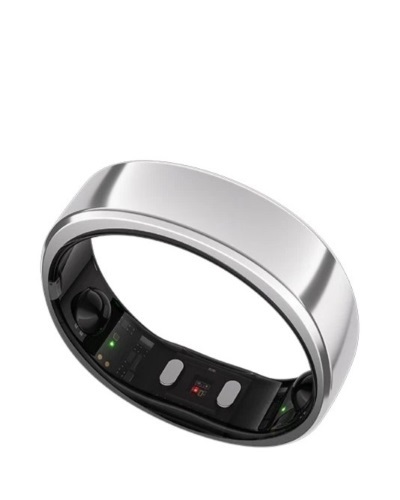
2. RingConn Gen 2 Smart Ring
Best runner-up
The RingConn Gen 2 is one of the newest rings to hit the market. It has the longest battery life of any smart ring, up to 12 days. Plus, it can help detect sleep apnea and comes in many different sizes.
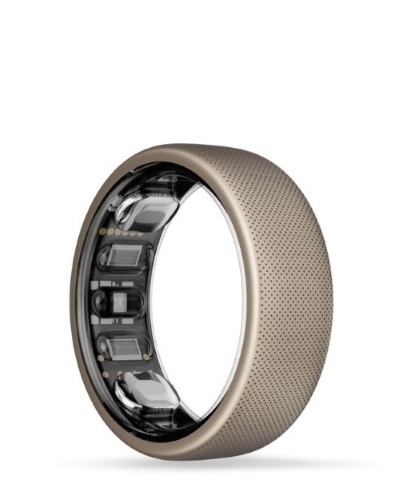
Best for fitness
The Amazfit Helio Ring may not be the strongest contender among smart rings, but a combination of design choices and an AI-driven app make this a good ring to consider for fitness enthusiasts, especially if you own an Amazfit smartwatch.
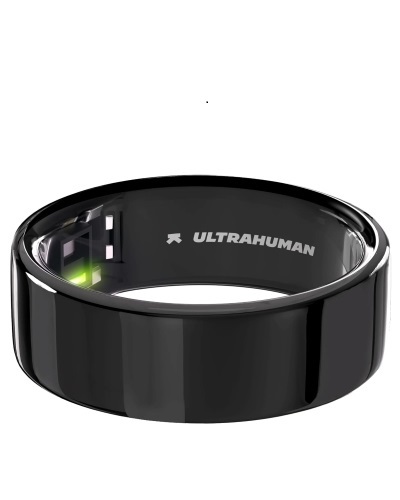
Best for sleep
If you haven’t heard of the Ultrahuman Ring Air, prepare to be impressed. This will be the first smart ring to detect AFib and even has a “sleep debt” feature to help users gain better insight into how sleep (or lack of it) affects wellness.
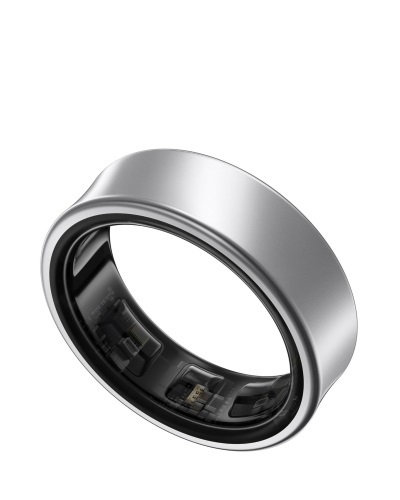
Best phone integration
Samsung isn’t just the biggest smartphone maker, but its knowledge in wearables makes it one of the biggest players in smart rings. Thanks to the Galaxy ecosystem, the Galaxy Ring can interact with your phone in ways others can’t.
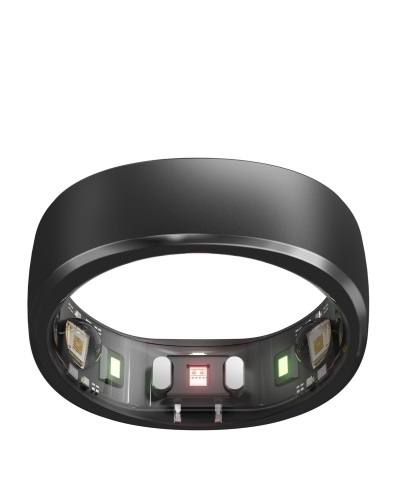
Best value
The first-generation RingConn Smart Ring may not have the nearly two-week battery life of its successor, but it still lasts a full week on a single charge and has some pretty great health-tracking features. It’s also cheaper and has no subscription.
Best overall
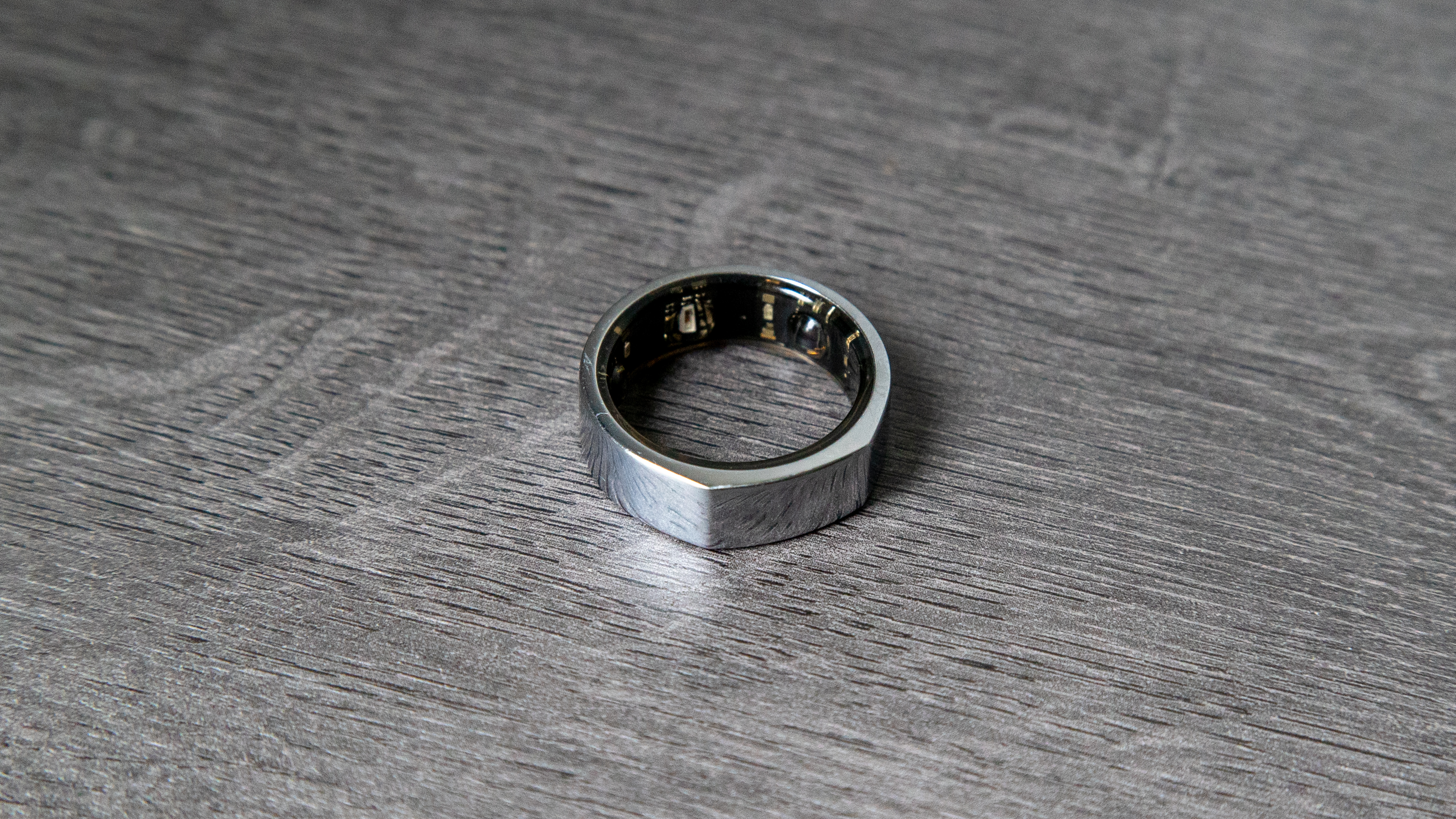
The Oura Ring (Gen 3) has been available for a few years now, but it is undeniably still the king of the smart ring. After a fairly rough start, with the ring still missing many promised features, Oura has been on a roll, adding new features every year and partnering with other companies to bring more capabilities to the ring.
Sleep tracking is one of its strong points, which is great since some people prefer not to wear smartwatches to sleep. Thanks to its snug fit on your finger, the Oura Ring is great at tracking sleep, determining what stages you’re in throughout the night, and logging any detected movements. Sleep tracking is quite detailed, and while there’s no sleep apnea detection, it provides enough information to help users self-diagnose.
Beyond sleep tracking, the Oura Ring can automatically detect certain activities, such as running, gardening, and even dancing. Yes, dancing. In the years that I’ve used the ring, I’m always surprised to see it ping my phone after a party, asking if I had been dancing at a certain time. Thanks to its accelerometer, it can be surprisingly intuitive, although it’s not perfect.
The Oura Ring monitors your temperature, which can help detect illnesses or even track menstrual cycles. All this information adds to your Readiness score, which will help you determine how ready you are for the day and what you can do to improve your daily readiness. The best part is that Oura syncs with Health Connect and apps like Strava. Plus, it lasts a full week on a single charge, meaning you rarely have to remember to charge it.
Unfortunately, to get the most out of the Oura Ring experience, you’ll have to subscribe to a membership. It only costs about $6 a month, but it’s still an extra financial burden you’ll have to take into account.
Read more: Oura Ring (Gen 3) review
| Attribute | Quick look | Score |
|---|---|---|
| Design | Comes in two styles with plenty of sizes and colors to choose from. | ★★★★★ |
| Price | Starts off fairly reasonably priced, but can get expensive. Subscription required for most useful features. | ★★★☆☆ |
| Battery life | Up to 7 days on a single charge | ★★★★★ |
| Health | PPG, temperature sensor, and accelerometer to monitor various metrics, including sleep, blood oxygen, and more. | ★★★★★ |
| Fitness | Automatic activity tracking, although lacks HR tracking for most workouts. | ★★★★☆ |
| Software | Insightful app with plenty of actionable data. Syncs with other apps and Android Health Connect. | ★★★★★ |
Best runner-up
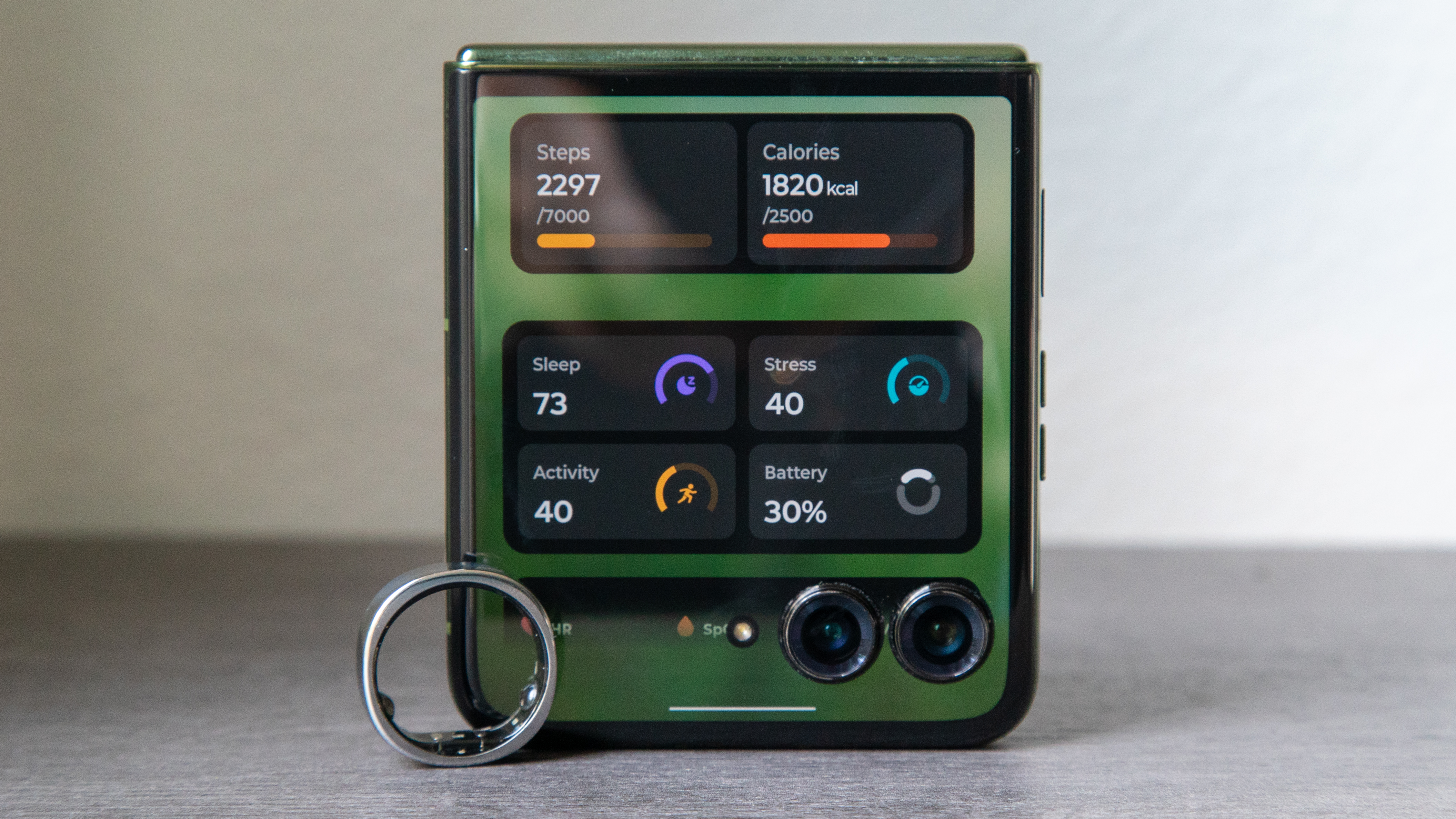
RingConn is a relatively unknown company, but its products are surprisingly solid. The RingConn Gen 2 launched in 2024, and while it’s mostly similar to its predecessor, it comes with some welcome additions that make it a great option if you’re looking for a smart ring that doesn’t come with a subscription.
Where most smart rings go for a circular design, the RingConn Gen 2 has a squircle shape, which looks rather fresh. And even with how glossy the silver model I tested is, the finish doesn’t scratch or scuff nearly as easily as the Oura Ring, which is a plus for people who like to work out or perform other activities with their ring on.
Another thing the RingConn Gen 2 Smart Ring has going for itself is battery life. Lasting as long as 12 days, you can go nearly two weeks without worrying about charging it, and when you do, you can use the charging case that you can also carry around (although it’s too big for most pockets).
The app experience is pretty intuitive, providing easy-to-read visual representations of your daily progress compared to the day before, as well as your various health metrics. You’ll also enjoy the timeline feature that logs various events that you can easily track. The ring can track certain workouts, but it doesn’t do it automatically, and the options are limited.
Sleep tracking is one of the ring’s strong points, as it is capable of sleep apnea monitoring, which should help users who worry that they might suffer from the condition or help those that do keep track of any improvements. Unfortunately, this drains the battery quite a bit.
Read more: RingConn Gen 2 Smart Ring review
| Attribute | Quick look | Score |
|---|---|---|
| Design | Has a unique squircle design with three colors and many sizes. | ★★★★☆ |
| Price | Fairly reasonably priced with no subscription | ★★★★★ |
| Battery life | Up to 12 days on a single charge, comes with a charging case | ★★★★★ |
| Health | PPG, temperature sensor, and accelerometer. Features sleep apnea detection with high accuracy | ★★★★☆ |
| Fitness | No auto activity tracking and can only track few workouts | ★★★☆☆ |
| Software | Useful app and visually easy to use. Does not sync with Android Health Connect | ★★★★☆ |
Best for fitness
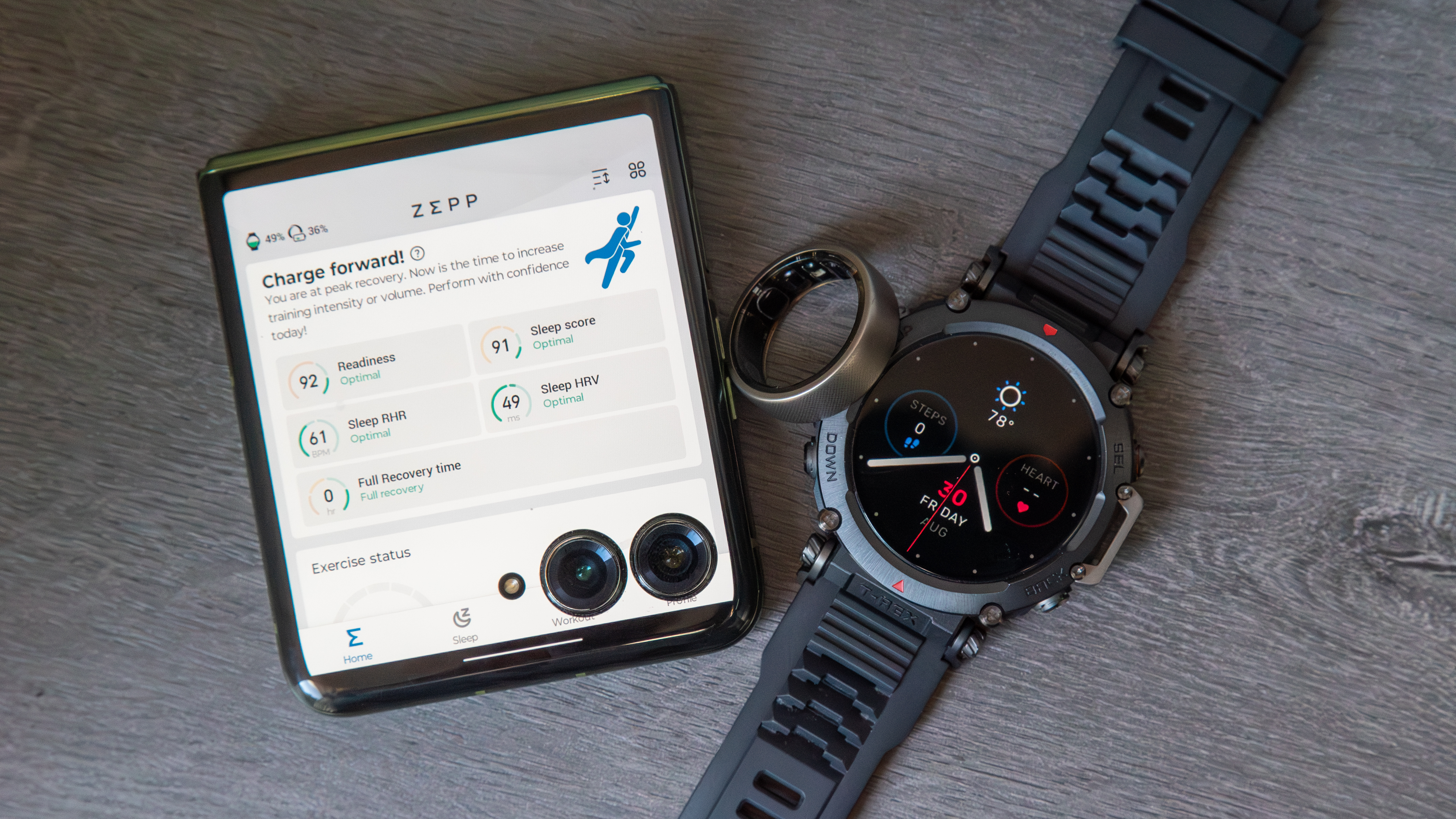
Amazfit makes some of the best Android smartwatches on the market, so it only made sense for the company to launch its own smart ring. The Amazfit Helio Ring is a decent first effort, and while it falls short on some features, the company makes up for it with a good design and some compelling health and fitness features. Plus, it looks like the Amazfit is welcoming feedback and making changes accordingly, which is a very good sign.
The Helio Ring features a very sturdy design, which, in my use, felt like the most durable option out of the smart rings I’ve tested. While there’s only one finish, the brushed metal actually fares well when wearing the ring during workouts, which is more than I can say for the Oura Ring.
While Amazfit says there’s no automatic workout detection, the ring does passively log certain activity types in the calorie section of the app, which I find interesting. It tells me if I was on a “light walk” or doing a “light activity,” or if I was walking faster than usual, it would say as much. However, these aren’t logged as workouts like the app would do with an Amazfit smartwatch.
Speaking of, the Helio Ring is best used with an Amazfit smartwatch. This is because the ring can’t log many workout types on its own, so the Amazfit app uses AI to merge data from both the ring and watch to give you a comprehensive view of your day. You can also choose to only collect heart rate data from the ring if you prefer.
The downside is that you would need to purchase a separate device to take advantage of these features. Additionally, the Amazfit Helio Ring has the shortest battery life of smart rings we’ve tested at just four days. Still, since reviewing the Helio Ring, Amazfit has dropped the price of the ring, added a new size (bringing it to three), and got rid of its subscriptions, meaning you can take advantage of all its features for free.
Read more: Amazfit Helio Ring
| Attribute | Quick look | Score |
|---|---|---|
| Design | Sturdy design but only one color option and few sizes. | ★★☆☆☆ |
| Price | Affordable after price cut with free access to membership. | ★★★★★ |
| Battery life | Up to 4 days on a single charge. | ★★☆☆☆ |
| Health | Basic health tracking features with stress tracking and breathing quality. | ★★★☆☆ |
| Fitness | Passive auto activity tracking and basic manual tracking. | ★★★☆☆ |
| Software | Uses AI to intelligently combine data from Amazfit smartwatches | ★★★★☆ |
Best for sleep
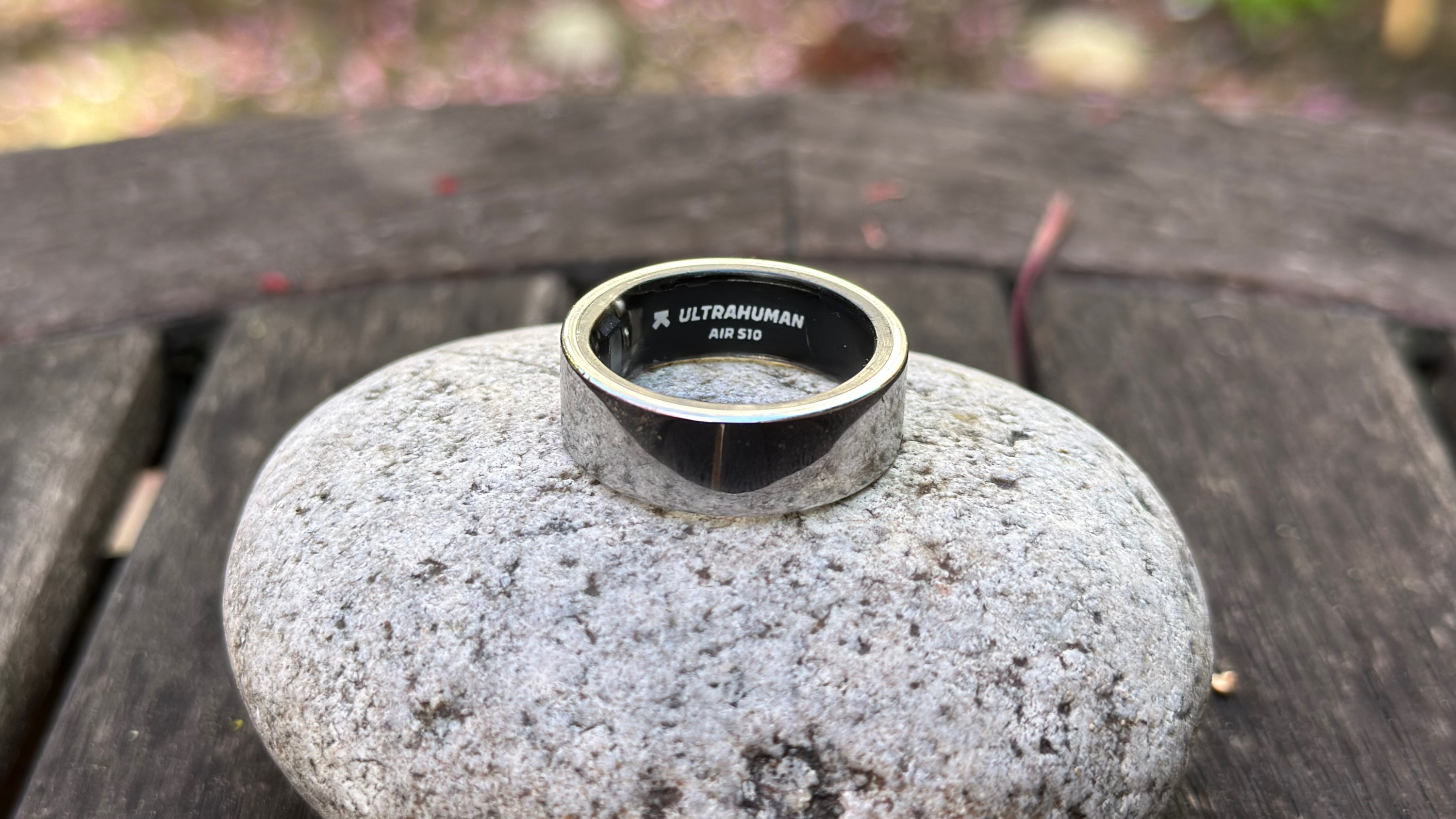
Smartwatches aren’t the most comfortable when it comes to sleep tracking, which is where smart rings like the Ultrahuman Ring Air come in. This smart ring has a comfortable design that makes it easy to wear all day and night, ensuring you can get the full range of your health metrics when you’re awake or asleep.
When it comes to sleep tracking, the Ultrahuman Ring Air not only provides insights into your sleep stages throughout the night, but it also tells you how well you slept based on factors like your body temperature, restfulness, efficiency, and more. The ring will even track your “Tosses and Turns,” which can also provide insights into your sleep quality and the impact that stress or other factors may have.
The ring also takes how much you’ve slept into account with a Sleep Debt feature. This establishes a baseline for you based on your patterns and calculates the difference between this and the amount of sleep you’ve actually received. This is a good way to know if you’ve fallen behind and need to take time to catch up on your sleep by getting in a nap.
In his Ultrahuman Ring Air review, Android Central senior editor Michael Hicks says the ring provided him with actionable data for a concerning metric that he would have otherwise ignored since he does not like wearing smartwatches to bed. To him, this makes the ring worth the initial high price.
Aside from sleep tracking, the Ultrahuman Ring Air also comes with up to six days of battery life, which is pretty respectable, and some workout tracking. It will also be the first smart ring with AFib detection, which is a big deal. However, Hicks says that you may become annoyed with the flurry of notifications, and the step tracking is fairly unreliable. The ring is also pricey, but at least there’s no subscription.
Read more: Ultrahuman Ring Air review
| Attribute | Quick look | Score |
|---|---|---|
| Design | Comfortably design with multiple colors and size options. | ★★★★☆ |
| Price | Expensive upfront cost, but no subscription. | ★★★★☆ |
| Battery life | Up to 6 days on a single charge. | ★★★★☆ |
| Health | Focus on sleep tracking and will soon receive AFib detection. | ★★★★☆ |
| Fitness | Row 4 – Cell 1 | ★★★☆☆ |
| Software | Confusing app experience with some useful features. | ★★★☆☆ |
Best phone integration
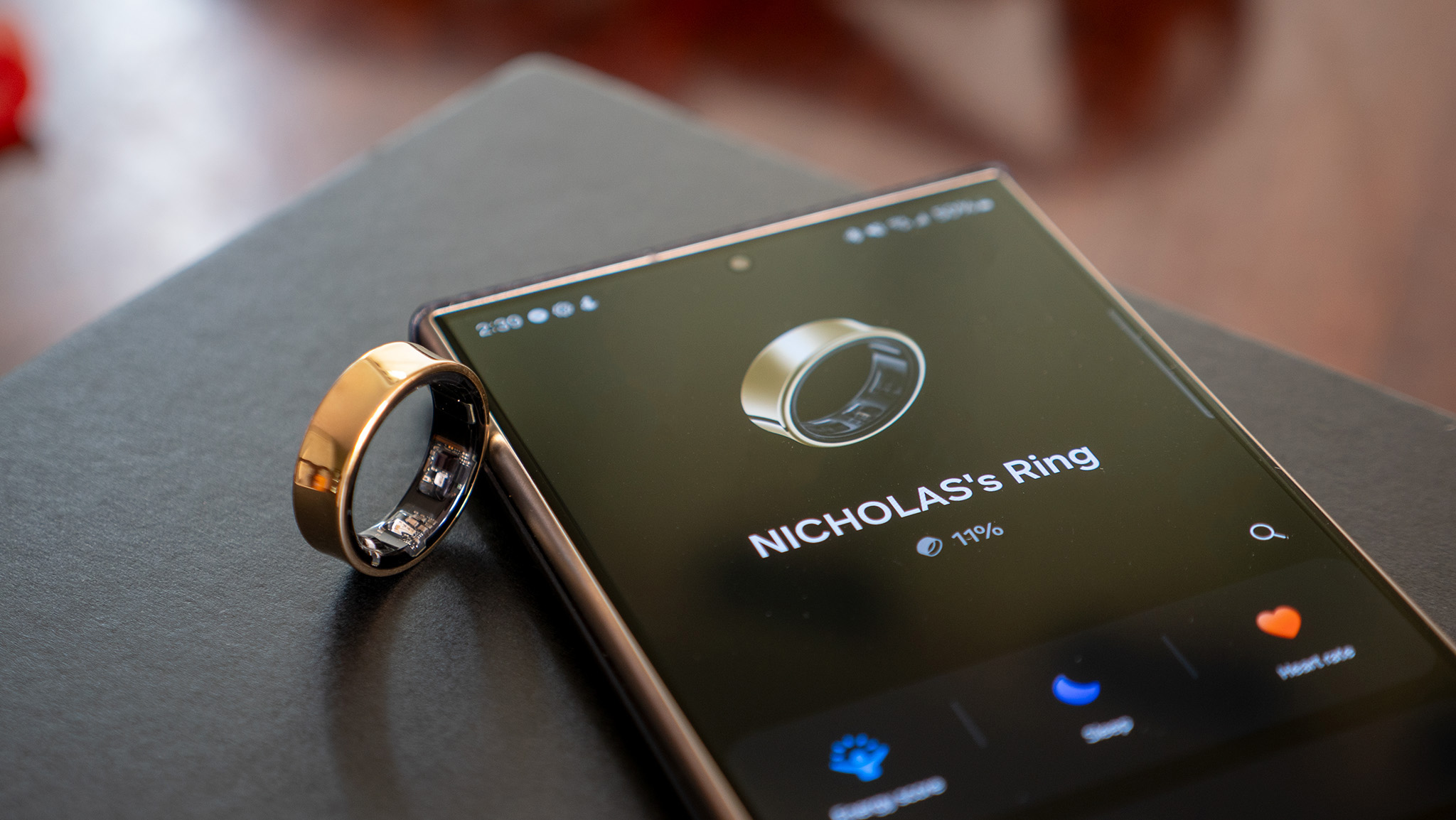
Samsung is probably the biggest name to enter the smart ring game, and while the Galaxy Ring is far from perfect, it has the benefit of being part of the Galaxy ecosystem. As such, the ring connects to Samsung Health and utilizes Samsung’s Galaxy AI to provide insights into your health via a sleep score and readiness score.
The Galaxy Ring has automatic workout detection, something you don’t find on too many smart rings, although it’s pretty limited. You also have get a sleep score based on your sleep quality, and when combined with your other activities and metrics, the Samsung Health app will provide you a Wellness Score. The app uses Galaxy AI to analyze your metrics and suggest ways you can improve them. However, the ring goes beyond just health tracking.
Samsung is the only major smartphone manufacturer to have a smart ring, so it makes sense for the company to figure out a clever way to make the most out of this. That’s where gestures come in, which allow you to control certain functions on your phone by performing certain movements with your finger. So, by just pinching your designated ring finger with your thumb twice, you can utilize remote capture functions with the camera. You can also snooze alarms without touching your phone.
In his Galaxy Ring review, Android Central senior editor Nick Sutrich notes that these are cool features, but they only work for very specific circumstances and are limited to Samsung phones. He complains about this limitation with Galaxy AI insights as well, meaning you’ll need a Samsung phone with Galaxy AI capabilities to get the most out of the Samsung Ring.
Despite the high price, Samsung does not charge for a subscription, which should help soften the blow.
Read more: Samsung Galaxy Ring review
| Attribute | Quick look | Score |
|---|---|---|
| Design | Stylish ring with a number of sizes and a few color options. | ★★★★★ |
| Price | Starting cost higher than most smart rings, but no subscription. | ★★★☆☆ |
| Battery life | Up to 7 days on a single charge, with a stylish and compact charging case. | ★★★★★ |
| Health | Basic health tracking, but with some inaccuracies with sleep tracking and lacks some advanced features. | ★★★☆☆ |
| Fitness | Auto workout detection, but limited manual tracking. | ★★★☆☆ |
| Software | Galaxy AI-powered app, but insights and extra features are gimmicky and limited to Samsung phones | ★★★☆☆ |
Best value
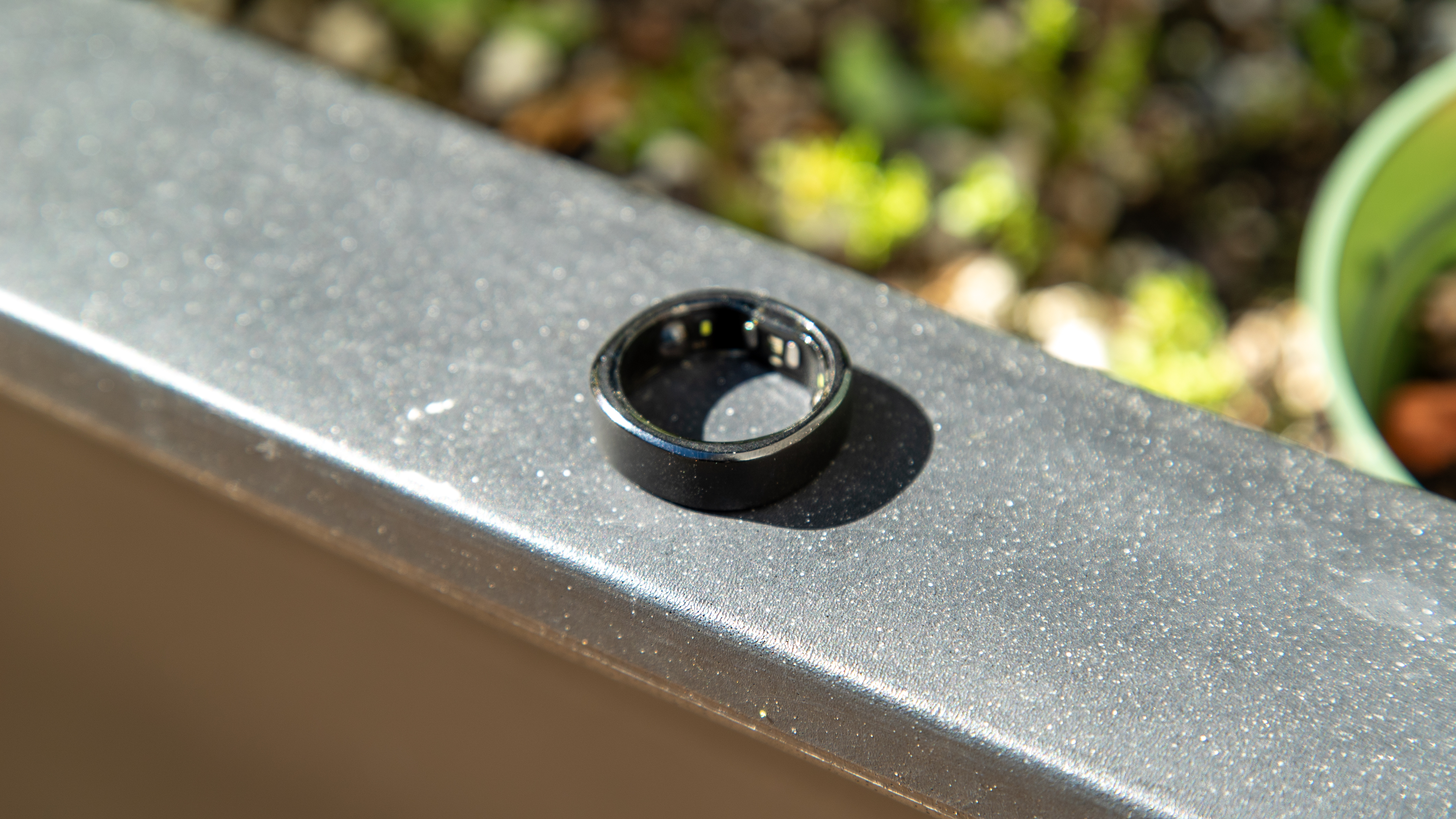
While RingConn’s second-generation smart ring is better in a lot of ways, the first-gen RingConn Smart Ring is still an impressive device. It gets up to seven days of battery life and comes with a charging case you can carry around. It also comes in various sizes and a few different finishes, so you’ll likely find one that fits (literally) your style.
The RingConn Smart Ring uses the same companion app as the second-gen model, which is great because the app is quite informative and makes it easy to see your daily metrics or compare them to the previous day. You also get “medals” based on certain activities or milestones that you hit, which is pretty motivational.
While most smart rings start at $299, the RingConn Smart Ring is available for $279, which is kind of a steal when you consider there’s no subscription involved, meaning you’ll have access to all the available features.
Unfortunately, the ring lacks certain features I’d love to see, such as automatic workout detection and support for Health Connect (although Google Fit is supported). The available workout modes are also fairly limited, but the ring supports major ones like running, cycling, and the treadmill.
If you won’t want to spring for the more expensive Gen 2 Smart Ring, the first-gen is worth the spend.
Read more: RingConn Smart Ring review
| Attribute | Quick look | Score |
|---|---|---|
| Design | Has a unique squircle design with three colors and many sizes. | ★★★★☆ |
| Price | Priced under much of the competition with no subscription | ★★★★★ |
| Battery life | Up to 7 days on a single charge, comes with a charging case | ★★★★★ |
| Health | PPG, temperature sensor, and accelerometer with basic health tracking. | ★★★☆☆ |
| Fitness | No auto activity tracking and can only track few workouts | ★★★☆☆ |
| Software | Useful app and visually easy to use. Does not sync with Android Health Connect | ★★★★☆ |
Honorable mentions
The above options are just the tip of the iceberg when it comes to smart rings. There are many other offerings out there, including some we have not yet tested but hope to. This includes a smart ring focused on women’s health, another with haptic feedback, and even some with NFC.
As such, it’s worth pointing out some of these other options in case the above did not quite tickle your fancy. We’ve tested one of them, and I’ve looked into quite a few of these in my research and feel comfortable highlighting them.
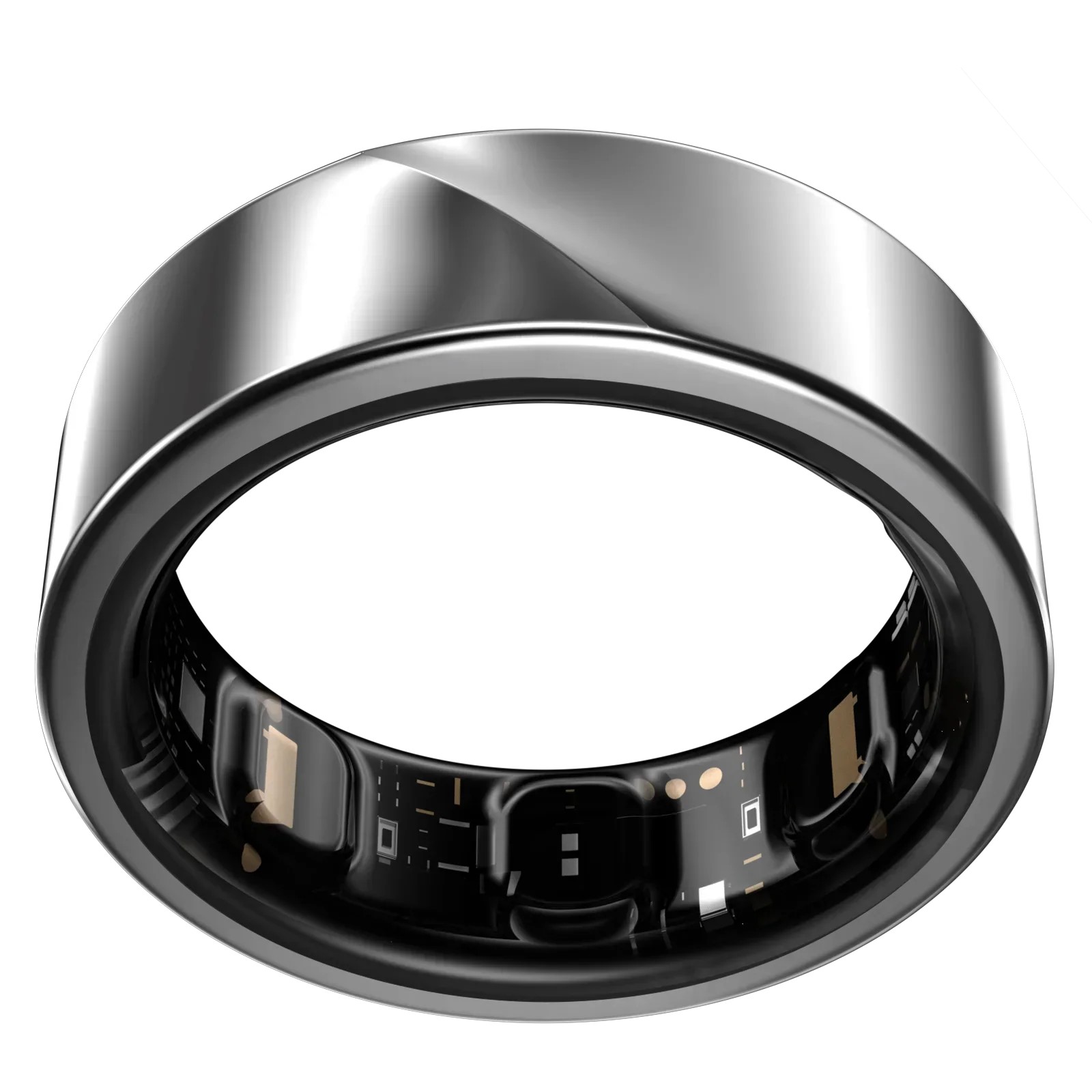
For the Indian market
As a leading wearable manufacturer in India, Noise has joined the smart ring fight with the Luna Ring. It has a sleek, lightweight design, features useful sleep metrics with polished software, and it’s quite affordable. Unfortunately, battery life isn’t the best, and activity tracking could use some work.
Read more: Noise Luna Ring review
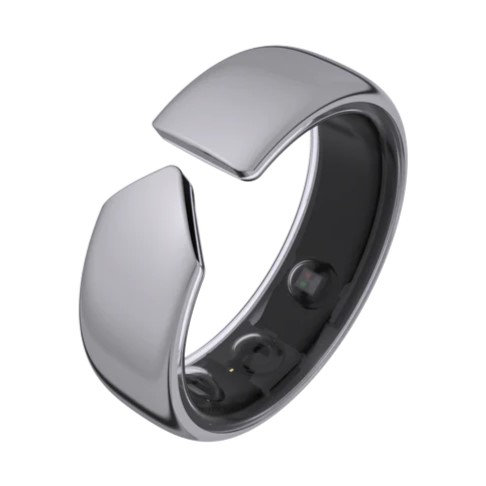
For women
This beautifully-designed ring was made specifically to address the health needs of women with menstrual health features like cycle tracking and menstrual symptom logging. Beyond health metrics, the Evie Ring takes a users emotions into account to provide insights into mood, stressors, and ways to achieve physical and mental wellness.
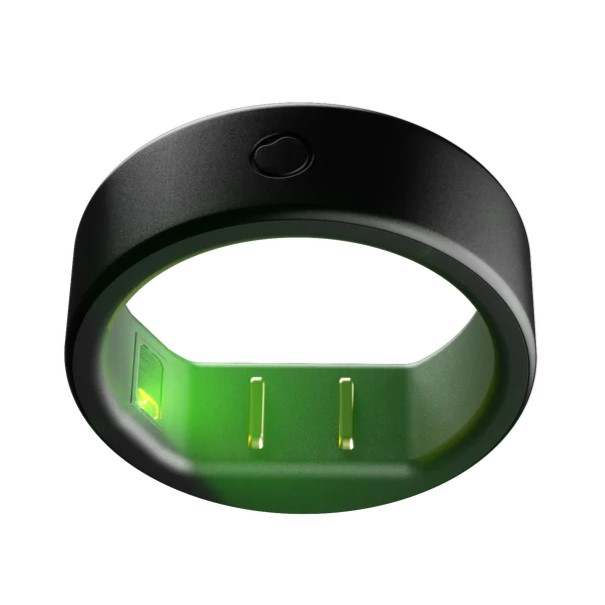
Feel the vibrations
Most smart rings don’t feature haptics of any kind, but the Circular Ring Slim can vibrate with alarms, timers, and even guided breathing. But that’s not all, because this ring also has a “button” that can do things like snooze alarms. And of course, the ring can also monitor your health metrics and last five days on a single charge.
How to choose
So with the growing number of smart rings out there, how do you know which one is right for you?
First, you should know what kinds of features you’re looking for. Most smart rings come with the basics, such as heart rate tracking, blood oxygen, sleep monitoring, and temperature sensing. However, you have to look at the extra health tracking features these rings offer and how the data is being used. For example, the Oura Ring and Evie Ring use metrics such as temperature sensing to help track menstrual cycles, which could be beneficial to those who experience periods.
If you want to use the ring to track workout data and aid with recovery, you’ll want a ring that is not only well-built with good water resistance but also features automatic tracking, meaning you’re spending less time looking at your phone. The Oura Ring, Galaxy Ring, and Amazfit Helio Ring all feature this to some extent (and at differing levels).
Price is a big factor when choosing a smart ring. They cost roughly as much as a smartwatch but can be priced even higher. Sometimes, the upfront cost can seem unwieldy, but in most cases, that’s the only price you’ll pay. In other cases, like with Oura, you’ll also have to consider the monthly subscription cost, which is admittedly fairly low at $6 per month, but it’s still something to consider.
Lastly, you may want to consider if you want to buy a smart ring to replace or supplement your smartwatch. Smart rings come with a lot of health tracking features, but their functionality is somewhat limited compared to a smartwatch. On the other hand, they’re much less distracting and good at capturing the main metrics, including heart rate and sleep. Some rings, like the Galaxy Ring and Helio Ring, will merge data from smartwatches of the same brand, which helps give you a better overview of your health. Some rings, like the Oura Ring, can also sync with Health Connect or Apple Health, which is also helpful in this regard.
How we test
Why you can trust Android Central
☑️ One of the oldest and most trusted Android sites on the web
☑️ Over 15 years of product testing
☑️ Thousands of products reviewed and tested since 2007
☑️ Dozens of wearables tested every year by our team
Smart rings are relatively new to the scene, but we have started reviewing them in 2021. Like all other products we test, from Android phones to smartwatches, we typically spend a couple of weeks with the devices before we give our final thoughts on it. Sometimes, we’ll publish an initial review with early impressions up to a week after we receive a product, then test it for an additional few weeks before publishing the full review. This way, you can be sure you’re getting our full experience with a product.
We will wear the ring and go about our normal routines, for the most part. That includes exercising or running errands so that the ring can capture as much data throughout the day and night. We may also test multiple rings at the same time if we want to compare how they capture metrics such as step counts (using a manual step counter), heart rate (starting and stopping workouts at the same time), and more.
Testing a smart ring for a couple of weeks at a time also ensures that we can evaluate the battery life and charging speed, as these devices often last for up to a week or more on a single charge.
No product is perfect, and we remain honest in all of our reviews. A product may get a high rating but may not be perfect for everyone, or it may get a low score but still have some redeeming qualities that some potential buyers may like. We try to keep this in mind when reviewing smart rings, and this is reflected in our reviews.
